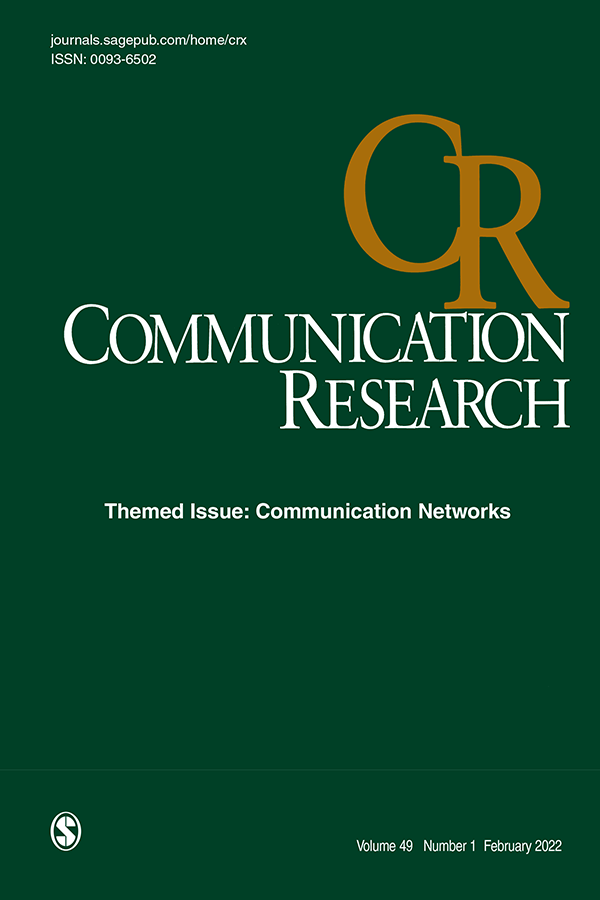Personality, Attachment, and Pornography: A Meta-Analysis
IF 3.2
1区 文学
Q1 COMMUNICATION
引用次数: 0
Abstract
Since Internet pornography (IP) is widespread and can become problematic for some users, investigating the personality traits which correlate with its consumption is important. Though many studies have been conducted on the relationship between IP, personality traits, and attachment, no meta-analysis has been conducted to synthesize this literature. We aimed to address this gap through a meta-analysis comprising 51 studies with 45,808 individuals (female = 35.19%, mean age = 37.81). The strongest correlation was found for sexual compulsivity ( r = .372), followed by impulsivity ( r = .273), self-control ( r = −.210), narcissism ( r = .172), and conscientiousness ( r = −.147). Statistically significant positive correlations were found between impulsivity ( r = .245), (sexual) compulsivity ( r = .392), neuroticism ( r = .114), and anxious attachment ( r = .131) with problematic use of IP. The correlations between conscientiousness and both general IP ( r = −.145) and problematic use of IP ( r = −.149) were statistically significant and negative. Moderator analyses revealed that the internal consistency of pornography measurement moderated the relationship between IP and neuroticism.人格、依恋和色情:元分析
由于网络色情(IP)非常普遍,而且可能会对某些用户造成问题,因此研究与 IP 消费相关的人格特质非常重要。尽管已有许多关于网络色情、人格特质和依恋之间关系的研究,但还没有对这些文献进行荟萃分析。我们旨在通过一项荟萃分析来填补这一空白,荟萃分析包括 51 项研究,涉及 45 808 人(女性 = 35.19%,平均年龄 = 37.81)。研究发现,相关性最强的是性强迫(r = .372),其次是冲动(r = .273)、自控(r = -.210)、自恋(r = .172)和自觉(r = -.147)。冲动(r = 0.245)、(性)强迫(r = 0.392)、神经质(r = 0.114)和焦虑依恋(r = 0.131)与问题性使用 IP 之间存在统计学意义上的正相关。自觉性与一般 IP ( r = -.145) 和问题性 IP 使用 ( r = -.149) 之间的相关性在统计学上显著且为负。调节分析显示,色情测量的内部一致性调节了 IP 与神经质之间的关系。
本文章由计算机程序翻译,如有差异,请以英文原文为准。
求助全文
约1分钟内获得全文
求助全文
来源期刊

Communication Research
COMMUNICATION-
CiteScore
17.10
自引率
0.00%
发文量
20
期刊介绍:
Empirical research in communication began in the 20th century, and there are more researchers pursuing answers to communication questions today than at any other time. The editorial goal of Communication Research is to offer a special opportunity for reflection and change in the new millennium. To qualify for publication, research should, first, be explicitly tied to some form of communication; second, be theoretically driven with results that inform theory; third, use the most rigorous empirical methods; and fourth, be directly linked to the most important problems and issues facing humankind. Critieria do not privilege any particular context; indeed, we believe that the key problems facing humankind occur in close relationships, groups, organiations, and cultures.
 求助内容:
求助内容: 应助结果提醒方式:
应助结果提醒方式:


